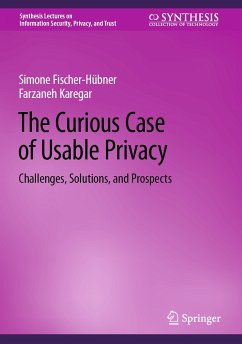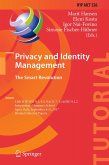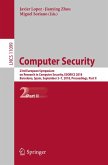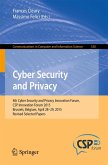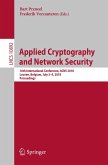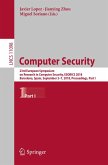This book journeys through the labyrinth of usable privacy, a place where the interplay of privacy and Human-Computer Interaction (HCI) reveals a myriad of challenges, solutions, and new possibilities. Establishing a solid understanding of usable privacy research, practices, and challenges, the book illuminates for readers the often shadowy corridors of such a multifaceted domain and offers guidelines and solutions to successfully traverse the challenging maze.
The book does not simply focus on data protection or legislative frameworks but also on what it takes for privacy to be safeguarded, understood, embraced, and easily practiced by all. It begins with a thorough exploration of the background of privacy tools and technologies, the evolution of privacy rules and regulations, and the backdrop upon which this narrative unfolds. After establishing this context, its next important focus is the current state and future directions of the field, including the frontiers of usable privacy research in relation to the Internet of Things (IoT), usability of PETs, and usable privacy for UX and software developers. The book also considers the often-overlooked privacy narratives of marginalized communities and delves into the complexities of user-centric privacy.
Readers are provided with a blueprint for addressing these hurdles and establishing pathways for a more privacy-conscious world. The text will be of interest to students studying Computer Science, Information Systems, or Law, as well as researchers and practitioners working in the fields of usable privacy, privacy by design, Privacy-Enhancing Technologies (PETs), or HCI. All will benefit from the book's central deliberation of a question that echoes through time and technological advancements: why does usable privacy matter?
Dieser Download kann aus rechtlichen Gründen nur mit Rechnungsadresse in A, B, BG, CY, CZ, D, DK, EW, E, FIN, F, GR, HR, H, IRL, I, LT, L, LR, M, NL, PL, P, R, S, SLO, SK ausgeliefert werden.
Es gelten unsere Allgemeinen Geschäftsbedingungen: www.buecher.de/agb
Impressum
www.buecher.de ist ein Internetauftritt der buecher.de internetstores GmbH
Geschäftsführung: Monica Sawhney | Roland Kölbl | Günter Hilger
Sitz der Gesellschaft: Batheyer Straße 115 - 117, 58099 Hagen
Postanschrift: Bürgermeister-Wegele-Str. 12, 86167 Augsburg
Amtsgericht Hagen HRB 13257
Steuernummer: 321/5800/1497
USt-IdNr: DE450055826
Bitte wählen Sie Ihr Anliegen aus.
Rechnungen
Retourenschein anfordern
Bestellstatus
Storno

